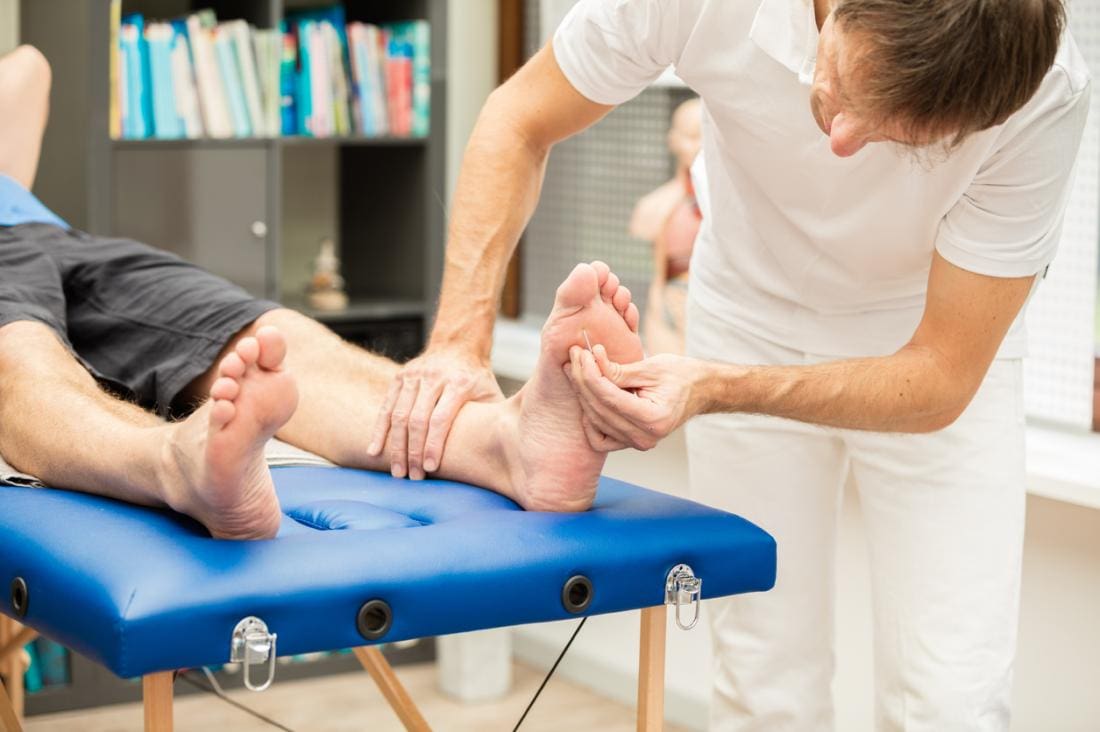
Whether you are on your feet all day or are a regularly performing athlete, there are so many common myths, misconceptions, and misguided information floating around out there that can reach your ears (and make you worry about your feet).
To help you sort out myth from fact, we’ve put together five common misconceptions about regular foot problems and why you should treat them properly—especially if you are already used to suffering from them on a regular basis.
Here they are:
1. If you have foot pain—you are probably wearing the wrong shoe.
Although it is common that you might fall victim to wearing poorly fitted or the “wrong” shoe, that might not actually the cause.
Causes can be boiled down to any number of reasons, including certain medical conditions, like diabetes, osteoarthritis or even carrying around a few extra pounds.
Any of these things could be the “cause” of your actual foot pain. Wearing improper shoes or not investing in something that can help it (like custom orthotics) will definitely NOT help your case, anyway.
2. High heels are off-limits if you have foot problems.
Especially if you have bunions or different types of foot problems that are increased or that cause you to feel pain when you wear them—you might be completely turned off by high heels. However, you don’t have to necessarily throw out your hundred of dollars Louis Vuitton pumps.
You can manage the time and cases you wear them, choose a high heel with a wider heel and a more secure base. This will help make it possible to wear heels without pain.
3. If you suffer from diabetes, you should leave your feet soaking in water on a daily basis.
Even though that sounds extremely luxurious, it’s not necessarily one hundred percent essential. It actually can lead to more serious problems if you do it as often as a daily basis.
Especially since your chance of having or developing foot problems and a loss of sensation in your feet, the wounds in your feet will actually heal more slowly and will be more susceptible in developing infections. If you have diabetes, you should not only make your routine foot care high priority, you should also try to avoid soaking your feet.
This daily bath can actually cause the skin to dry out—making it much easier for your feet to get an infection and the skin to crack.
Some tips that you SHOULD do, however, if you have diabetes and have foot problems (or have a higher risk of them) are:
• Check your feet on a daily basis—especially if you are at the point where you cannot regularly feel them
• WASH them daily—not soak them. Make sure to get in between your toes.
• Maintain healthy care with your nails and keep them trimmed on a regular basis.
• Try to avoid actions or activities that can cause an injury to your foot (like walking barefoot).
• Use a new pair of socks every day.
• Get properly-fitted shoes for your feet.
4. You can inherit a problem like Plantar fasciitis.
Some other foot problems, like bunions, for example, are actually directly in correlation with your genetics. Depending on your family medical history, you can actually have more of a chance of developing some foot problems like those.
Plantar fasciitis is NOT genetically inherited. Of course, there are different risk factors involved with the condition that are passed on through family members—like having flat feet (the rolling inward of your feet make them more susceptible in irritating your plantar).
Some other genetically inherited factors that increase your risk of developing Plantar fasciitis include your BMI and your overall body weight.
5. You can shower your athlete’s foot away.
Especially with the athletic connotation that comes along with the condition, you might think that athlete’s foot is simply rooted in poor hygiene (athlete’s are dirty, stinky people, right?).
However, that’s simply not the case—quite the opposite, actually. Showering regularly (especially in a shared showering facility like in the locker room or at the pool) with bare feet is a way that you can definitely develop athlete’s foot.
We would definitely recommend using shower shoes or sandals while in the public shower and when you can—keep your feet as dry as possible. This can help keep fungus away.
Know the Myths and the Facts
Although you might be aware of some myths associated with certain feet problems, knowing the proper way to treat these problems are also important.
The best way to treat them? Before they even come about.
Preventative Foot Health is extremely important to keep your feet as healthy as possible. On a regular basis, you probably don’t think about your feet. However, once you have a problem—you’ll definitely notice it! Having healthy feet is probably something you take for granted.
Taking care of your feet can lead to quite a few benefits, including:
• Improving your quality of life:
Having healthy feet will help lead you to be more self-sufficient and capable of performing daily activities without pain.
• Having an enjoyable work life:
Especially if you are at a job where you are on your feet most of the day, having healthy feet can definitely help improve the quality of your work and how you feel on a daily basis.
• Engage in more activity:
Especially since engaging in regular exercise will definitely help your health, being able to actually perform physical activity without pain is important.
Avoiding foot pain and treating foot problems can be done in so many ways. Not all of them even require a podiatrist.
However, if you are looking to get custom orthotics, be prescribed anti-inflammatory medications or even resort to well-backed surgery, taking a visit to your local doctor can help with your diagnosis and getting your treatment started.
Not only will they help correctly diagnose you with whatever problem you may be having but also identify the behavior or factors that may be causing the issue.
Once all of that is properly identified, they can get you started on a treatment plan tailored to your issue and proven to work.

